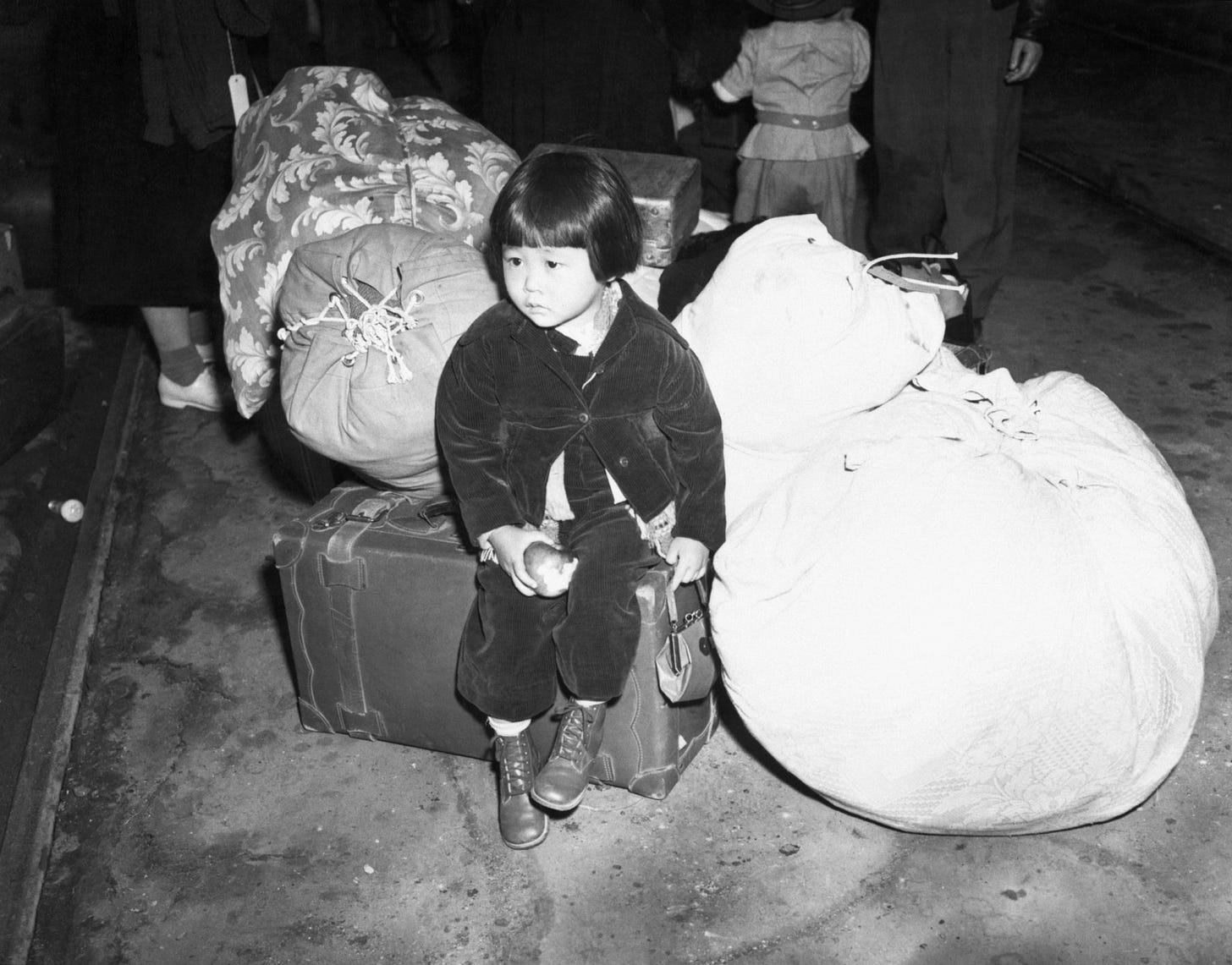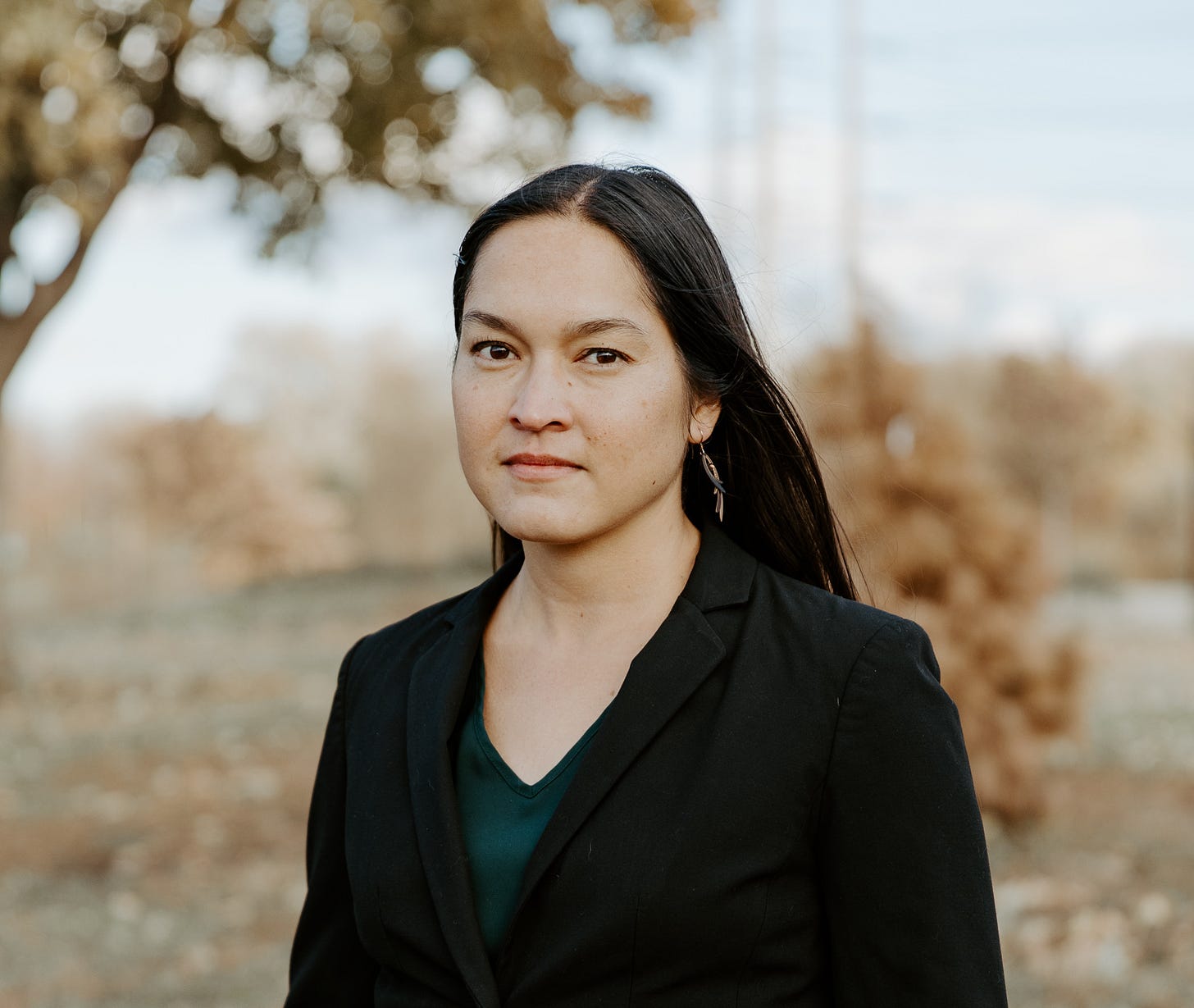When History Repeats, Will You Ride the Bus?
A granddaughter reflects on her family's WWII internment experience and what the Quakers' resistance teaches us about standing up to injustice today. By Sachiko Graber, founder of Waxwing Consulting.
When my grandmother was about 16, she was sent to prison.
Not a prison by name. As a well-behaved Japanese American girl in the 1940s, my grandmother would never have dreamed of breaking a rule. She was sent to “internment camp,” the term used for the incarceration of Japanese Americans during World War II. These camps were locked facilities, surrounded by barbed wire and guarded by soldiers in watch towers with big guns.
It was 1942, and President Roosevelt’s Executive Order 9066 sent Japanese Americans living anywhere along the West Coast to “internment camp.”
These were not fun camps.
They were horse stalls at county fairgrounds and shacks in freezing mountains.
There was no privacy and not enough food.
There was only humiliation.
First, second, and third generation Japanese Americans, as well as Japanese citizens, were accused of being dirty. Their neighbors refused to shop at their stores and stopped visiting their homes. They were accused of being traitors, enemies of the state, spies. Some of them were — rightly — accused of being in the U.S. illegally. Most of them, like my grandmother, were already U.S. citizens. Most of them lost their homes, furniture, heirlooms, farms, and livelihoods during the years while they were away. And, they were people, they were my family, they were our ancestors.
My grandmother, Rose, was a 16 year old girl. She was born in the U.S. and attended public school. She babysat for a neighbor in their small California town after school. Her parents’ farm was held in the name of her older siblings, because to conform with the law, her parents as first generation immigrants were not allowed to own property in our country. For this, she and her family were sent to prison.
When I asked her about it, she spoke of the fear. Fear of the unknown. Fear that she would bring the wrong things and leave the wrong things behind. Fear of not knowing whether her family would make it back to the family farm. Fear that their family’s assets would be stolen while they passed the war interned, incarcerated, demeaned. And of course, fear of losing friends, of falling behind in school, and of other day-to-day challenges.
My grandmother also spoke of kindness. Good neighbors who agreed to keep an eye on the farm, and who — unlike many Japanese American stories — actually didn’t steal the family’s assets while they were interned. Unlike many Japanese Americans, my family’s neighbors were Quaker. The Quakers were the only religious group in the country to consistently oppose internment, both before, during, and after it actually occurred.
In Japanese America’s episode ‘Quakers Acts of Kindness and Resistance: Japanese American Incarceration and Holiday Traditions’, podcast co-hosts Michelle MaliZaki and Koji Steven Sakai talk about how meaningful it was that some organizations resisted Japanese internment, and how important it will be for us to resist future attempts by the government to wrongly incarcerate others.
In particular, MaliZaki and Sakai discuss how the Quaker people showed up in 1942 — actively resisting internment, bringing gifts to make it more bearable, and even physically riding the bus with Japanese Americans to the internment facilities. They encourage us to “ride the bus” — literally or metaphorically — along with future individuals who are similarly, wrongly, incarcerated.
Today, this advice is incredibly salient given President Trump’s actions involving Guantanamo Bay, which he ordered to house 30,000 of “the worst criminal illegal aliens threatening the American people.” Trump’s Executive Order is worse than Roosevelt’s 9066 in 1942:
We are not at war.
There is no justification to think that undocumented immigrants are our enemies.
We have the privilege of hindsight, and know that the 1940s Japanese American internment was wrong.
In fact, multiple presidents have apologized for Japanese American internment. A 1983 federal commission reported that the Japanese American internment was the result of racism, not national security. The Civil Liberties Act of 1988 reported that the internment camps were “motivated largely by racial prejudice, war hysteria, and a failure of political leadership. The excluded individuals of Japanese ancestry suffered enormous damages, both material and intangible, and there were incalculable losses.”
By the early 1990s, the government disbursed reparations to those who had been incarcerated — those who were still alive, anyway. Given the 50 year delay, I remember my grandmother noting that it was “nice” to receive this recognition, but it didn’t really change anything.
To be on the right side of history, we must act like the Quakers and the American Friends Service Committee (AFSC) did in 1942 — showing up to resist wrongful incarceration plans. We must physically and verbally resist attempts by ICE to take wrongful action against our neighbors—this Facebook post outlines some good initial actions that bystanders can take. And of course, we can find ways to offer our resources—our money, our homes, and our organizations—to help immigrants find refuge when they are in tight situations.







